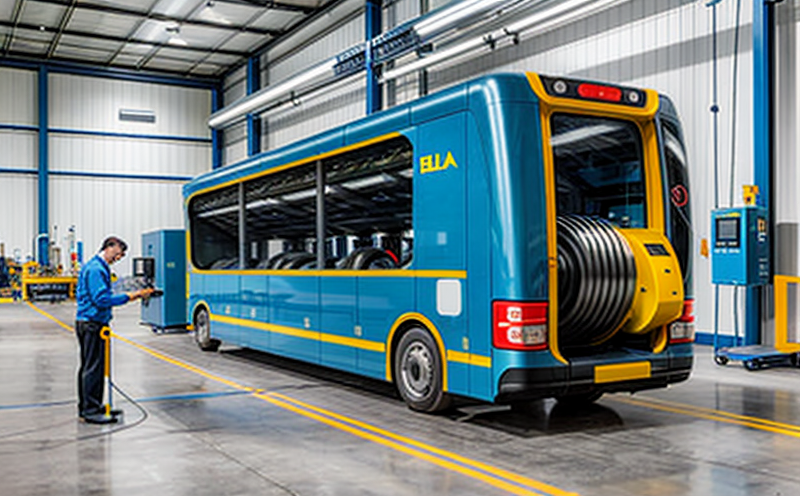Simulating pressure, bending, and stretching to evaluate how products perform under mechanical load
The Power of Simulation How Eurolabs Pressure, Bending, and Stretching Services Help Businesses Ensure Product Reliability
In todays fast-paced business world, product reliability is no longer a luxury, but a necessity. With increasingly complex products and materials being developed, it has become essential for companies to test their products under various mechanical loads to ensure they can withstand the rigors of real-world use. This is where Simulating pressure, bending, and stretching comes in a laboratory service provided by Eurolab that allows businesses to evaluate how their products perform under mechanical load.
What is Simulating Pressure, Bending, and Stretching?
Simulating pressure, bending, and stretching is a testing method used to assess the performance of materials and products under various mechanical loads. This process involves applying controlled forces or pressures to the product, simulating real-world conditions that it may encounter during use. By doing so, manufacturers can identify potential weaknesses in their products and make necessary design improvements to ensure they meet the required standards.
Why is Simulating Pressure, Bending, and Stretching Essential for Businesses?
In todays competitive market, companies need to be able to guarantee the reliability of their products to build customer trust and loyalty. Here are some key reasons why simulating pressure, bending, and stretching is essential for businesses
Product Reliability By testing products under various mechanical loads, manufacturers can ensure that they meet the required standards for performance, durability, and safety.
Design Optimization Simulation testing allows designers to identify potential weaknesses in their designs and make necessary improvements to create more robust and reliable products.
Cost Savings Identifying product defects early on through simulation testing saves companies from costly rework or even worse recalls due to faulty products.
Reduced Risk Testing products under controlled conditions reduces the risk of accidents, injuries, or fatalities associated with defective products.
Benefits of Simulating Pressure, Bending, and Stretching
Here are some key benefits of using Eurolabs pressure, bending, and stretching services
Improved Product Reliability
Reduced risk of product failure
Increased customer satisfaction and loyalty
Enhanced brand reputation
Enhanced Design Optimization
Improved product performance and durability
Reduced design iterations and costs
Faster time-to-market for new products
Cost Savings
Reduced rework and waste
Minimized recall costs
Lower warranty claims
Compliance with Regulations
Meets industry standards and regulations
Ensures product safety and performance
Avoids fines and penalties
How Does Eurolabs Pressure, Bending, and Stretching Service Work?
At Eurolab, our team of experts uses state-of-the-art equipment to simulate various mechanical loads on your products. Our testing process involves the following steps
Product Preparation We carefully prepare each product for testing by ensuring it meets the required standards.
Simulation Testing We apply controlled forces or pressures to the product, simulating real-world conditions that it may encounter during use.
Data Collection and Analysis We collect data on the products performance under various mechanical loads and analyze the results using specialized software.
Reporting and Recommendations Our team provides a comprehensive report of the testing results, including recommendations for design improvements or modifications.
QA Frequently Asked Questions
Here are some frequently asked questions about Eurolabs pressure, bending, and stretching services
Q What types of products can be tested using simulating pressure, bending, and stretching?
A Our service is suitable for a wide range of products, including machinery, automotive components, aerospace parts, medical devices, and consumer goods.
Q How long does the testing process take?
A The duration of the testing process varies depending on the product type and complexity. However, our team can typically complete testing within 2-4 weeks.
Q What is the cost of simulating pressure, bending, and stretching services?
A Our pricing structure is competitive, and we offer customized packages to meet your specific needs. Contact us for a quote.
Q Do you provide design optimization recommendations as part of your service?
A Yes, our team provides comprehensive reports with recommendations for design improvements or modifications based on the testing results.
Conclusion
In todays fast-paced business world, product reliability is no longer a luxury, but a necessity. By simulating pressure, bending, and stretching at Eurolab, manufacturers can ensure that their products meet the required standards for performance, durability, and safety. With our expertise and state-of-the-art equipment, we help businesses identify potential weaknesses in their designs and make necessary improvements to create more robust and reliable products. Contact us today to learn more about how Eurolabs pressure, bending, and stretching services can benefit your business.
-
Testing the mechanical durability of consumer products under stress conditions
-
Assessing the tensile and compression strength of consumer goods to prevent structural failure
-
Testing for cracks, deformations, and material fatigue under prolonged mechanical stress
-
Evaluating how consumer products react to forces like twisting, pulling, and pushing
-
Simulating real-world mechanical stresses to test product reliability in everyday use
-
Testing for failure points or weakness in critical components of consumer goods under stress
-
Assessing how different materials used in products perform under mechanical loading
-
Evaluating the long-term effects of repeated mechanical stress on product lifespan
-
Testing the ability of consumer products to withstand physical manipulation and heavy use
-
Simulating mechanical stress in environments where products are exposed to varying pressures or forces
-
Testing the mechanical integrity of products designed to withstand extreme use, such as tools or sports equipment
-
Evaluating the failure modes of products when exposed to excessive forces
-
Assessing the performance of locking mechanisms, latches, and other components under mechanical stress
-
Testing for bending or breaking points in products like chairs, tables, and kitchenware
-
Verifying product safety and functionality under mechanical loading conditions
-
Assessing the impact of stress on non-visible components of the product, such as internal wiring
-
Testing for early signs of wear or breakage in products subjected to mechanical forces
-
Simulating common real-life scenarios that involve mechanical stress on consumer goods
-
Ensuring that products meet durability standards when subjected to mechanical challenges




